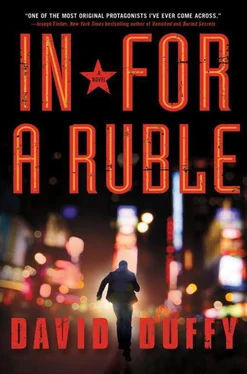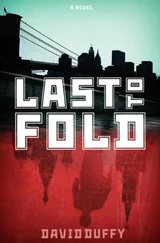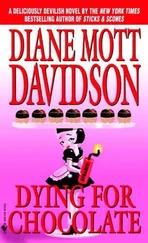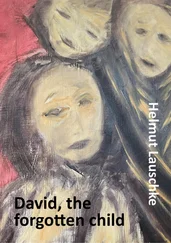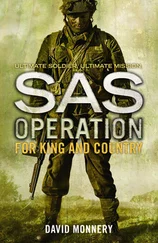She started for the bedroom, stumbled and fell against the couch. I was there in an instant, helping her up, making sure she wasn’t hurt. I tried to hold her but her fists pummeled my chest.
“Vika! Stop! I’m just going to talk to the man.”
“I want that girl in my office before noon!”
She pulled away from my embrace and holding up the turtleneck all but ran to the bedroom, the door slamming behind her.
I stood in the middle of the floor, arms suspended in the air, the TV news announcer prattling away behind me. I had no idea what he was saying. I was still there when she reemerged, fully dressed, and walked out the door without saying good-bye.
This time, I did follow, as far as the elevator.
“Vika, I’ll do what I can about Irina. But tell me what’s wrong.”
She shook her head.
“Is that no? Why not?”
She looked up, eyes full of tears. “If you think about it just a little, you’ll figure it out. Just bring the girl. I have to go.”
The elevator arrived with a chime, and she got on, keeping her back to me. She didn’t start to turn around until the door was closing and the cab dropped from sight.
Controlled bedlam at Madison and East Ninety-second. The cops had the block sealed. News crews, reporters, and onlookers jostled for position. A major catastrophe and everyone wanted a piece of the action. The police were edgy, as was the crowd, even though at 10:40 A.M., three hours after the attack, there wasn’t much left to see. The bodies and the limo had been removed. All that remained was a snow-covered street filled with cops and emergency workers milling around.
The snow slowed everything. I’d walked from the Ninety-sixth Street subway station, thinking about Victoria and Batkin, Irina and Andras and Leitz, trying to put the pieces together. I had assumed Victoria’s case was against Konychev, hence her unwillingness to talk about him. Now, it appeared it could be Batkin—or both of them. Konychev had to be Suspect Number One for this morning’s attack. One or the other or both would be going after Coryell’s missing computers. But if Nosferatu had killed Coryell, presumably he had them. Konychev was after Andras and Irina. Batkin appeared unaware of his stepdaughter’s involvement in the destruction of his business. Alexander Lishin had been murdered, presumably by one partner or the other. The disintegration of the BEC ownership structure, as well as the business itself, had to be total. One thing was clear—Irina stood at the center of it all. Maybe that’s what Victoria meant when she said I’d figure it out. That seemed too easy, but it was certainly why she told me to bring her in. Still, I felt like I needed a scorecard.
In New York, everyone is responsible for clearing the front of his or her own building, which means the city’s sidewalks get shoveled in patchwork fashion. Park Avenue is lined with big apartment buildings, and they have staff, and the staff have shovels, snowblowers, and salt. The side streets, lined with town houses, were uneven going—clear in front of several houses, then a foot of snow for half a block. The temperature had risen overnight then dropped back into the low twenties at daybreak, adding a crust of ice—and another layer of shoveling difficulty. One blessing was lack of wind. The late morning was clear and dry—the exact antithesis of the way I felt. My brain resembled the sidewalk—a slushy, opaque, half-frozen patchwork of a few clear facts and a lot of buried connections waiting to be shoveled out. Beria joined me briefly as I walked, the first time I’d seen him in days.
Don’t forget about me. I’m still part of this.
I told him to beat it.
The police wouldn’t let me into Batkin’s block until I phoned, and he sent one of his remaining battalion of bodyguards to fetch me. A chorus of “Hey! Who’s he?!” rose from behind as the police moved the barrier to let me through. A broad-backed man, whose forebearers probably shepherded my fellow zeks to work in the forests of the Kolyma camps, led me silently down the icy block. I noted the crumpled sides of the parked cars and the bloodstained snow bank riddled with bullet holes. I had the memory of another ice- and snow-crusted time and place—a prison camp covered in the blood of its unfortunate inhabitants. I was one of them, I’d been lucky enough to escape, and now I was walking back in under my own power, drawn by a fellow sufferer whose motive matched the bloody snow in its opacity. Beria watched from Batkin’s door, grin in place. Victoria’s admonition to figure it out knocked hard at my brain.
The transition from crime-scene street to Batkin’s neoclassical living room jarred. He sat in a maroon velvet armchair, surrounded by royal greens and golds and reds. The room was smaller than Leitz’s, but the high ceiling gave it grandeur, as did the paint, wallpaper, and fabrics, none of which came from Home Depot. He was wearing a dark purple silk robe, ankle-length, with what was almost certainly a mink collar. Russian funeral suit in a czar’s palace. His hairpiece was in place. Had it remained intact during the shooting? A half-full brandy snifter sat by his chair. He looked up as I entered, gray-blue eyes difficult to read—sad, certainly, but still hard.
“Thank you for coming on short notice. Drink?”
“I’ll join you.” If that collar was mink, the brandy was probably good. No point in not being sociable, and it might help melt the ice upstairs—or so I told myself. He pushed his robed body to its feet and went to a large, heavy sideboard holding decanters and glasses. He was moving all right, but perhaps not with the full confidence of purpose he’d had Wednesday at my office. Dark blood clotted on the half-moon forehead and plump left cheek. The side of the pyramid nose was scratched as well. Minor injuries, under the circumstances. He brought me a snifter and indicated I should sit.
“Irina’s gone,” he said.
I stifled a curse. If anyone acted foolishly, I half expected it to be Leitz, not an experienced hood like Batkin.
“What happened?”
He told me about the attack.
“Did you argue?”
He shook his head. “We probably would have, but I couldn’t get her to talk. Her mother’s away—in Moscow—and Irina went to her room as soon as she got here. Refused to come out. I tried to talk to her through the door, but…”
He sipped his brandy while I considered the irony of a Chekist unable to interrogate his own family.
“And this morning?”
“We were going to church. I thought maybe it would help her…”
He trailed off as if unsure what kind of help was being sought.
“What can you tell me about this… this group she was involved with?”
I noted his use of past tense and thought to correct him. He mistook my hesitation.
“Remember my tattoos. I doubt you can shock me.”
Having no idea what was going on, or whose side anyone was on, or even what sides were available to join, half of me decided this was an instance where evasion, rather than honesty, was the best policy. The other half, thinking about Victoria, said the best way out of this mess was to put my cards on the table, as I knew them to be, and look for an opportunity to walk away. As that half climbed to 60 percent, I told him about the Players, minus names and addresses. I also omitted, for the moment, the Walter Coryell–ConnectPay connection and Andras Leitz.
As I moved deeper into the story, Batkin stood and walked around the room, glass in hand. I couldn’t see what he was thinking, he kept his back to me for the most part. I could only imagine the impact, even on a Gulag- and Cheka-hardened psyche. I’d warned Leitz about how the last case had ended badly for everyone involved. This one was going places I could never have contemplated.
Читать дальше
